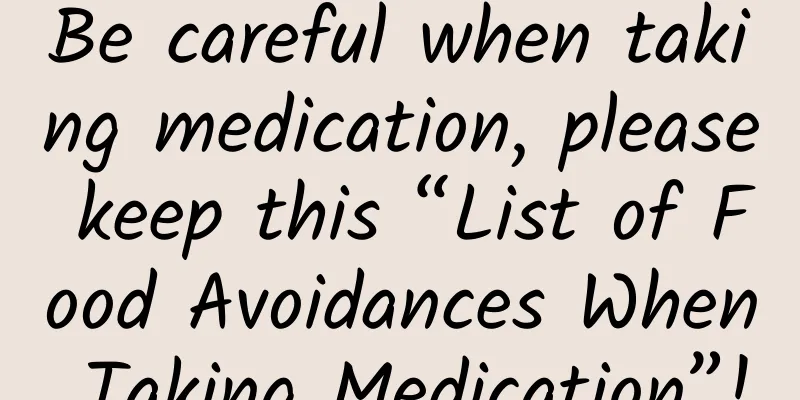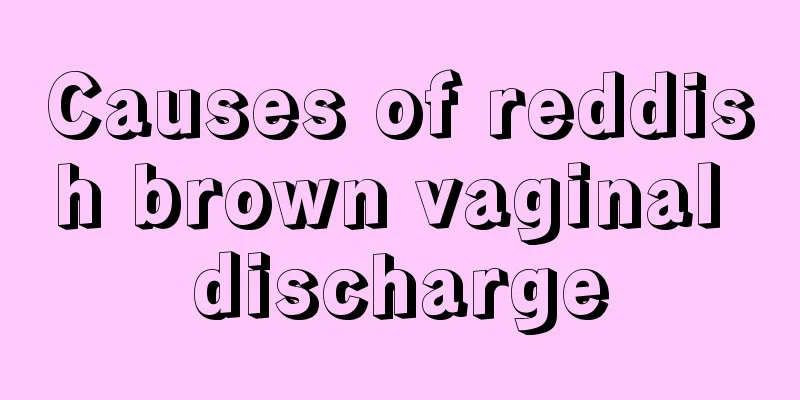Be careful when taking medication, please keep this “List of Food Avoidances When Taking Medication”!

|
"Cephalexin and alcohol are not allowed" It is common knowledge that many people know. However, in addition to cephalosporin and alcohol, there are many other taboos in life. Pay attention to the correct combination of food and medicine. Do not smoke within 30 minutes of taking any medication. Tobacco contains polycyclic aromatic hydrocarbons, which can increase the activity of liver drug enzymes and accelerate the metabolism of drug solutions, resulting in insufficient drug concentrations in the blood and difficulty in fully exerting the drug's efficacy. Nicotine contained in tobacco can also reduce the effect of drugs and increase adverse reactions. It is best not to smoke, especially when taking anesthetics, sedatives, antipyretics, analgesics and hypnotics. It is not advisable to drink alcohol when taking most medications. The main component of alcohol is ethanol, which is converted into acetaldehyde in the body and then converted into water and carbon dioxide and excreted from the body. Cephalosporins and nitroimidazoles such as metronidazole will inhibit the continued conversion and excretion of acetaldehyde, increasing the acetaldehyde concentration in the body and causing a disulfiram-like reaction: facial flushing, chest tightness and shortness of breath, and in severe cases even anaphylactic shock, which is life-threatening. Attention! Avoid drinking alcoholic beverages for one week before and after using this type of antibacterial drug. Sporogen drugs : cefoperazone, cefmetazole, cefuroxime, latamoxef, cefmenoxime, ceftriaxone, cephalexin, cefazolin, cefradine, cefaclor, etc. Nitroimidazole drugs : such as metronidazole, tinidazole, ornidazole, and secnidazole. Other antibacterial drugs : such as furazolidone, chloramphenicol, ketoconazole, and griseofulvin. Many people take medicine with tea for convenience, but this is actually incorrect. Tea contains a variety of amino acids, vitamins, inorganic salts, tannic acid, volatile oils, and alkaloids such as caffeine and theophylline. These substances can interact with certain drugs, thereby reducing their efficacy or even causing adverse reactions. Do not drink tea while taking medicine. If you drink tea, it should be at least one hour apart from taking the medicine to reduce the interaction between tea and medicine. Ibuprofen is an effective and commonly used drug for treating arthritis and relieving mild to moderate pain. But it is irritating to the gastric mucosa, and the cocaine contained in cola and the caffeine contained in coffee and strong tea will stimulate the secretion of gastric acid, aggravating the damage of ibuprofen to the gastric mucosa. Milk will reduce the activity of antibiotics and prevent them from exerting their full effectiveness. It is recommended not to drink milk within two hours before and after taking antibiotics. In addition, it is not recommended to drink milk when you have diarrhea. Not only will it reduce the efficacy of antidiarrheal drugs, but the lactose it contains can easily aggravate diarrhea symptoms. Elderly people who take antihypertensive drugs for a long time should pay special attention. There is a substance called furanocoumarin in grapefruit, which can affect the normal effects of drugs or amplify some side effects. Some people's blood pressure drops significantly after taking grapefruit and antihypertensive drugs at the same time, and in severe cases, their lives are in danger. Avoid eating grapefruit and citrus fruits within 3 to 4 hours of taking the medicine. If you have eaten grapefruit within 3 days, it is best to tell your doctor when you see your doctor. Stomach medicine works by neutralizing stomach acid with antacid ingredients. If you consume vinegar before or after taking the medicine, the effectiveness of the antacid will be reduced or even ineffective. In addition, within 1 to 2 hours before and after taking the medicine, you should try to eat less stir-fried dishes, cold dishes containing vinegar, and sour foods such as hawthorn and black plum. Consuming grapefruit (grapefruit) during medication (especially drinking large amounts of grapefruit juice, such as 1-2 liters a day) will increase the absorption rate of statins, and may make adverse reactions such as myalgia and liver damage more likely to occur. Do not eat sweets when taking bitter stomachic medicine. Bitter stomachic medicine relies on the bitter taste to stimulate the secretion of digestive juices such as saliva and gastric juice, promote appetite and aid digestion. On the one hand, the sweet ingredients will mask the bitter taste and reduce the efficacy of the medicine. On the other hand, they will also react with many ingredients in the stomachic medicine to reduce the efficacy. Important reminder: Patients with chronic diseases should not stop taking medication at will Take medicine regularly as prescribed by your doctor If you need to change your treatment plan It should be performed under the guidance and supervision of a doctor -END- |
<<: Holiday syndrome is not a disease, but it is really fatal when it occurs? Here is the reason →
>>: This food is closely related to immunity, but many people may not eat enough
Recommend
How to treat oily hair and hair loss in women
Oily hair is mainly caused by disordered sebaceou...
How to breastfeed with inverted nipples
Before each feeding, the mother gently pulls out ...
How to raise tiger fish well? How to treat tiger fish when it is sick?
Tiger fish is very common in our daily life. It i...
Schematic diagram of the location of the uterus and navel
The uterus and belly button are mostly located ab...
Teach you how to distinguish between depression and mental illness!
Because patients with depression sometimes behave...
What are the precautions for pregnancy in patients with schizophrenia?
Preparing for pregnancy refers to the prerequisit...
How to help expel the gestational sac
Many times, due to the lack of long-term contrace...
Can a mother breastfeed if she is positive? What are the symptoms of a newborn baby infected with the new coronavirus? Experts say...
Recently, with the optimization and adjustment of...
Thin endometrium and no menstruation
When it comes to thin endometrium, women don'...
Why are my periods getting less and less frequent?
Menstruation is a normal physiological phenomenon...
Breast enlargement and delayed menstruation
Physically mature girls will have menstruation ev...
At what age are women most sexually active?
Not only men have sexual needs, but women also ha...
There is a small meat ball growing from the vagina to the mouth. It hurts.
If there are small lumps at the vulva, you should...
What should pregnant women with anemia and high blood sugar pay attention to?
Some female friends pay special attention to thei...
What are the symptoms after a girl's first time?
Female friends will feel slight pain in the vagin...









